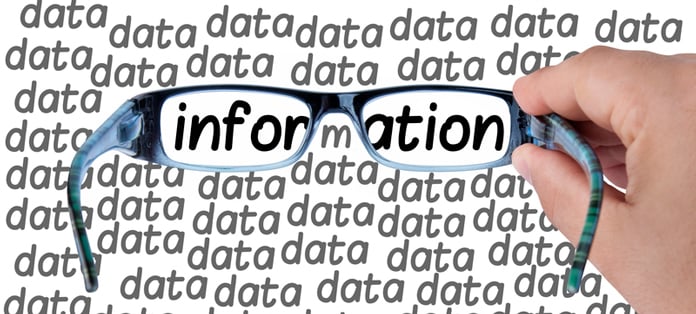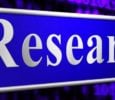When researching standards and authoritative references for legal nurse consultant jobs you’ll encounter both databases and websites. Databases are generally more inclusive and more complete than websites, but both have important uses.
A database is generally a collection of indexed data on a given topic (or topics) organized for storage, retrieval and ease of accessibility. Some of these databases will give you full-text access to the documents identified in the search results. Others will return citation-only results or abstracts, both of which require additional search efforts to find the full text or article.
Databases may require some training to search effectively, but almost all have easy to use tutorials that will get you started. As a Certified Legal Nurse Consultant you can do the research yourself or you can subcontract it out to another CLNC® consultant who specializes in medical-related research.
To help you research your legal nurse consultant jobs with precision, I asked the CLNC Pros to recommend the databases they use. These are the top 16 medical-related databases recommended by the CLNC Pros:
- AHRQ WebM&M Cases & Commentaries: When you have a case involving a medical error you can search for similar incidents/cases in the Agency for Healthcare Research and Quality (AHRQ) Morbidity and Mortality Rounds on the Web database. The cases, commentaries and associated reference lists can be helpful for research and in guiding you to determine whether the case is meritorious.
- CINAHL: We all remember the Cumulative Index to Nursing and Allied Health Literature (CINAHL) from nursing school. You can access nursing journals, publications, textbooks, nursing dissertations, selected conference proceedings, standards, audiovisuals and book chapters. Free trials and different subscription options (including full-text) are available.
- Cochrane Database of Systematic Reviews: The Cochrane Database of Systematic Reviews (CDSR) is a database containing evidence-based, systematic reviews and meta-analyses of primary research in healthcare and health policy. This is an excellent resource for researching very specific information.
- Drugs.com: Provides up-to-date information on medications and related health information such as drug interactions, side effects and dosage guideline. The Drugs.com database is peer-reviewed and contains information from a variety of sources. There is also a Veterinary Product Database.
- EBSCO: Is a provider of evidence-based databases on a variety of healthcare-related subjects including medical, nursing and other topics.
- Embase: This is a biomedical research database that covers much of the same topics as Medline, but has additional information on drugs, pharmacology, medical devices and clinical medicine. If you’re looking for information on adverse drug events, drug-drug interactions, drug-disease-related biomedical research information and medical devices this is the place to start.
- Essential Evidence Plus: This evidence-based medicine website accesses a variety of databases primarily designed for point-of-care clinical decision support. Included in its resources are abstracts from the Cochrane Systematic Reviews, evidence-based medicine guidelines (EBMG) and summaries as well as select guidelines from the National Guidelines Clearinghouse. It does have an annual subscription fee. Certified Legal Nurse Consultants also love this site for the illustrations.
- Federation of State Medical Boards: A database that includes information regarding actions taken against physicians by state boards as well as Medicare/Medicate exclusions and/or reinstatements. Accredited by the National Committee for Quality Assurance (NCQA), this site is considered primary source verification and meets primary source requirements for state and federal sanctions by the Joint Commission and URAC (formerly Utilization Review Accreditation Commission).
- Manufacturer and User Facility Device Experience (MAUDE): This FDA database reports adverse events involving medical devices and contains device failure, adverse events and other information.
- MedPix®: The National Library of Medicine has created a free, open-access, searchable database of tens of thousands of medical images targeted to physicians, nurses and allied health professionals. The site is well organized and easily searchable. It can serve as a terrific resource to give your attorney-client a visual understanding of the legal nurse consultant job you’re consulting on. If you don’t find what you need at MedPix follow this link (provided by Dartmouth Biomedical Libraries) for a list of additional medical image libraries.
- MEDLINE: The MEDLINE database contains more than 29million citations and abstracts from more than 5,200 journals. The National Library of Medicine (NLM) provides free access to MEDLINE through PubMed (See #11). The main difference between PubMed and MEDLINE is that PubMed searches a broader selection of information which does include MEDLINE. MEDLINE, by itself, allows more focused searching of MEDLINE-only resources and is preferred by researchers. NLM licenses MEDLINE’s content to commercial database vendors such as Ovid MEDLINE® and EBSCO. Vendors offer different search capability as well as citation only or full-text versions. Subscriptions are required by commercial vendors.
- MedScape: This is a database of medical news and point-of-care drug and disease information for physicians and nurses. This database is broken down by specialty and contains a wealth of useful information. It also has an associated free app for both iOS and Android which allows you to get clinical information and medical news wherever you are. With information on 8,000 plus prescription and OTC drugs, clinical tools and reference articles, it provides information that is practical and timely and is a good reference for staying up to date on the latest research.
- PsycInfo® and PsycNET®: The American Psychological Association offers a number of databases that can assist you in your psych-related cases. They offer full text books and journals as well as additional resources. You can subscribe on an annual or on-demand basis. You can also browse for free and then elect to pay on an article-by-article basis.
- PubMed: The PubMed database comprises more than 34 million citations from MEDLINE, life science journals and online texts. Citations often include links to full-text content from PubMed Central and other web sites which can be used to support the validity of your opinions. There are also a variety of PubMed mobile apps for iOS and Android. Think of PubMed as a user-friendly face of Medline offering broader content searching. You can limit your PubMed searches to Medline by using NLM’s Medical Subject Headings (MeSH) terms.
- ScienceDirect: A database of peer-reviewed technical and medical research that you can search with a variety of parameters – specific or general. Some items will be full-text and open access while others will require purchase. This allows you to search journals, authoritative textbooks or both. The Health Sciences section covers medicine, dentistry, nursing, allied health professions, pharmacology, toxicology and pharmaceutical science.
- UpToDate: This database is an electronic clinical resource tool for healthcare providers and patients that provides access to current clinical information. It is evidence-based, physician-authored and available for both mobile, laptops and tablets.
Thanks to Suzanne Arragg, RN, BSN, CDONA/LTC, CLNC, Dale Barnes, RN, MSN, PhN, CLNC, Marcia Bell, RN, BSN, CAPA, CLNC, Kaylin Chase, RN, BSN, CNLCP, CLNC, Dorene Goldstein, RNC, BSN, CLNC, Sandra Higelin, RN, MSN, CNS, CWCN, CLNC, Caryn Jaffe, RN, CLNC, Camille H. Joyner, RN, BSN, CCM, CLNC, Robert Malaer, RN, MSN, FN-CSp., SANE, CNLCP, CALM, CLNC and Michelle Neal, RN, BSN, CLNC for sharing their favorite databases for medical-related research.
Use these 16 databases and you’ll find that researching your legal nurse consultant jobs has never been easier.
Success Is Yours,
P.S. Comment and share your favorite medical-related databases for researching legal nurse consultant jobs.
P.P.S. For more on medical research see the 7/5/22 blog 15 Medical Research Strategies for Legal Nurse Consultant Jobs and the 7/19/22 blog 61 Medical-Related Websites for Your Legal Nurse Consultant Jobs.








